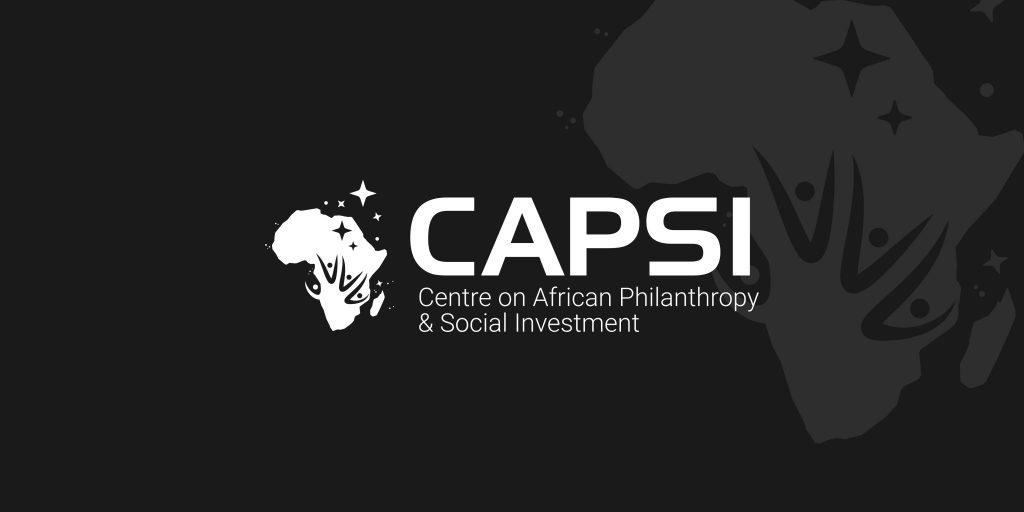Wycliffe Ouma, Eleanor Chipeta and Dennis Osei
Thanks to a substantive grant received in 2023, our Centre has embarked on a project that aims to research and publish knowledge on the contributions of the nonprofit sector to African economies, with a specific focus on the creation of dignified and fulfilling work for young people living on the continent.
The project implementation is guided by five core interventions, namely:
- Strengthening the project’s delivery capacity by setting the project’s implementation framework and recruiting personnel
- Conducting research in 17 African countries and publishing findings
- Education and training
- Monitoring and evaluation
- Communication and dissemination
Reflections on the Year
The past 12 months have been eventful for this project, seeing several dimensions executed and revealing significant progress alongside challenges. While the project has managed to recruit critical personnel, there have been challenges getting candidates for the Principal Researcher and the North Africa Regional Lead. Some of these challenges included policy restrictions, for example, targeted advertisements for female researchers under 35 years, as well as not getting the right fit for the positions. As a result, we had to shift to headhunting. The delays, while impacting timelines, emphasised the importance of flexible and proactive strategies for personnel recruitment for a project that is multi-country faceted.
Research of this nature entails making sure the vulnerable are protected and that all ethical considerations are taken into account. Not only did we get ethical clearance at our university, but we also made sure that all our partners in the 17 countries were cleared by the relevant authorities to conduct this research. The ethical clearance processes in different jurisdictions have highlighted the complexities of navigating diverse regulatory frameworks. While most countries obtained approval, delays persisted in others due to varying institutional and procedural requirements. These experiences underscored the necessity of localised approaches and consistent engagement with stakeholders to address context-specific barriers.
We also held two youth convenings in Kigali, Rwanda and Accra, Ghana. These meetings were instrumental in amplifying the voices of marginalised groups such as youth with disabilities, refugees, and rural participants. However, we learnt that logistical challenges, including visa issues and cultural restrictions on travel for women, demonstrated the need for us to be more comprehensive in planning to ensure equitable participation. The lessons from these convenings informed adjustments to future stakeholder engagements, particularly in accommodating diverse needs and barriers.
Given the focus of the project on young Africans, we tried to use young emerging researchers, and their inclusion in literature reviews proved both challenging and rewarding. Many reports required multiple rounds of revisions to meet quality standards, reflecting the need for sustained mentorship and capacity building. While these processes delayed some deliverables, they strengthened the developmental impact of the project by enhancing the skills of emerging scholars across Africa.
Another critical highlight was the stakeholder convening, held in Mombasa, Kenya. This gathering brought together representatives from governments, nonprofits, academic institutions, and private sector players to deliberate on integrating research findings into practical frameworks for youth employment strategies. The convening reinforced the project’s commitment to collaborative engagement while identifying synergies for advancing the nonprofit sector’s contributions to youth employment. The meeting also provided an opportunity to introduce stakeholders to the project, seek their buy-in, and invite their participation during the actual data collection and later dissemination of the findings.
Managing partnerships across 17 countries presented further lessons. The breakdown of a partnership in one of the partner countries due to misaligned institutional values highlighted the importance of clear agreements and shared expectations from the outset. CAPSI responded by formalising processes for establishing Memorandums of Understanding before contracting. This ensures stronger alignment and trust in future collaborations.
The decentralised coordination model proved critical in managing these complexities. Regular meetings among regional leads and partners allowed for real-time problem solving and maintained progress across regions despite the challenges. These experiences reaffirmed the importance of effective communication, collaborative decision-making, and adaptive planning in a project of this scale and complexity.
Looking forward: What to expect in 2025
In 2025, the project will enter a critical phase focused on consolidating the progress made in the past years while delivering key outputs that align with its objectives. The completion of data collection across all 17 participating countries remains a priority, with surveys and qualitative interviews set to proceed in countries where ethical approvals have been secured. CAPSI will continue to work closely with local partners and regulatory bodies to finalise these approvals and maintain project momentum. As data collection advances, analysis will begin in the first quarter of 2025. These findings will contribute to the development of country-level and regional synthesis reports, which will undergo peer reviews and stakeholder validation workshops in the latter half of the year. These workshops will ensure that findings are both actionable and reflective of the diverse contexts represented in the project.
Education and capacity-building activities will also expand in 2025. The focus will shift to equipping PhD fellows with the capacity to excel in their academic journeys and contribute meaningfully to the research agenda. Fellows, drawn from diverse universities across Africa, will receive structured support to strengthen their expertise and outputs. CAPSI will ensure they have access to advanced training workshops, academic writing programmes, and platforms for presenting their work to peers and broader audiences. Methodology workshops, such as the annual CAPSI PhD Writing Retreat, will provide fellows with opportunities to refine their research tools, engage with experts, and enhance their methodological rigour. Conferences like the African Philanthropy Academic Conference will serve as platforms for fellows to present preliminary findings to foster a culture of scholarly exchange and critique.
Recognising the importance of mentorship, fellows will collaborate closely with supervisors at their respective institutions while benefiting from CAPSI’s oversight to ensure alignment with the broader objectives of the project. Advanced statistical and qualitative training programmes will be prioritised, building fellows’ capacity in data analysis using tools like NVivo, SPSS, and Stata. Structured programmes will expose fellows to peer-reviewed publishing, supporting them in drafting and submitting journal articles and conference papers. Fellows will also participate in field scoping exercises and pilot studies, gaining firsthand experience that strengthens their practical research skills.
Dissemination efforts will take centre stage in 2025, with regional policy convenings planned in East, West, North, and Southern Africa. These convenings will bring together policymakers, nonprofit leaders, and private sector representatives to discuss the findings and explore how nonprofits can contribute to national and regional youth employment policies. CAPSI will also host webinars to engage broader audiences, including youth-led organisations, academic institutions, and other stakeholders. The digital knowledge platform will be expanded to include interactive dashboards, reports, and multimedia content, making research findings accessible to a wide range of users. Short videos and reels will further amplify the project’s key messages while showcasing the voices of youth participants and highlighting actionable recommendations for addressing systemic barriers to youth employment.
Monitoring and evaluation will play an integral role in 2025, with the implementation of the framework being developed in collaboration with CLEAR-AA. This framework will facilitate a mid-term review to assess progress, identify challenges, and recommend course corrections. The focus will remain on tracking measurable outcomes that reflect the impact on youth employment and capacity building. Addressing challenges from previous years will also remain a priority.





